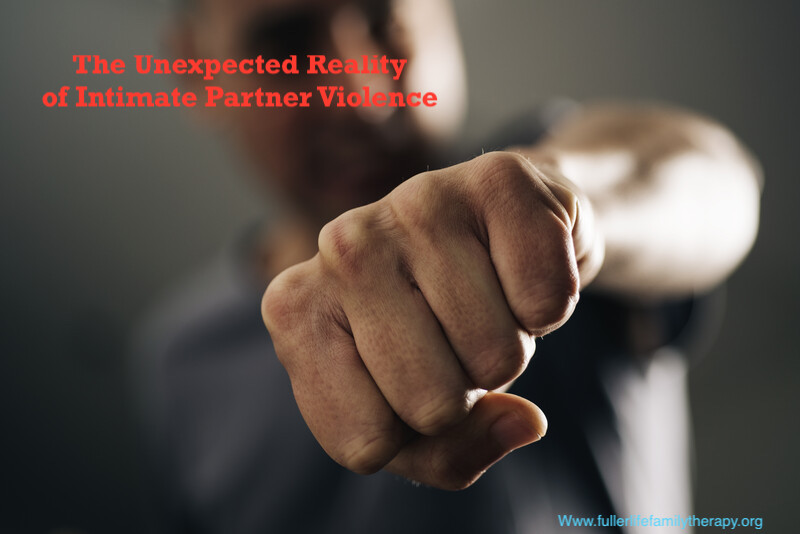The unexpected reality of intimate partner violence
Sometimes relationships are surprising and perplexing. What begins as an ideal match in the eyes of others, can be a disappointing world of nightmares.
When this relationship with an intimate partner appears different in public than it is in private, it may be time to examine the direction that the relationship is growing into.
How do you know when it is time to examine your relationship? One red flag is when the “ideal” relationship only exists in public. Sometimes, the private relationship is very different than the one shown to others.
Is there reason for discomfort?
If examining the relationship brings definite feelings of discomfort, there may be valid reasons for that feeling. Consider the following points.
Does your partner
- try to control what you are doing, check your phone, e-mail or social media without your permission?
- force you to have sex when you don’t want to?
- attempt to control your birth control or perhaps insist that you become pregnant before you are ready?
- decide what you wear or eat?
- decide or how you spend money?
- humiliate you in front of others?
- prevent or discourage you from seeing or visiting with friends, or family?
- unfairly accused you of being unfaithful.
If you can answer yes to any one of these questions, you are likely experiencing domestic or intimate partner violence (IPV).
IPV is sometimes difficult to identify. Many people have a reaction of “Whoa, not me, my husband/wife, boyfriend/girlfriend loves me.” Love is not just about romance though. It is about respect, and respect has no room for violence in any form.
IPV is about control and abuse in any part of a person’s life. This control or abuse may be experienced in social activity, finances, religion and even sexual activity. What is helpful to understand is that IPV is very subtle and progresses over time.
What is Intimate Partner Violence?
Society tends to think of violence as being solely physical abuse. However, emotional abuse can be just as, or even more, damaging. IPV is a physical episode of being hit, beat, or pushed. It may be a situation of being blamed for a partner’s violent outbursts. It is important to realize that IPV is not limited to physical violence. Statements such as “If I can’t have you, then no one can” also qualifies as IPV. Verbal insults, humiliation and put-downs are also forms of IPV. It can also involve hurting or threatening someone’s children or pets.
As defined by the Center for Disease Control and Prevention, Intimate Partner Violence is
“…violence or aggression that can vary in frequency and severity and occurs on a continuum ranging from one episode that might or might not have lasting impact, to chronic and severe episodes lasting over a period of years.”
The Center for Disease Control and Prevention tells us that IPV can be four types of behavior:
- Physical violence is when a person hurts or even tries to hurt a partner by hitting, kicking or using any other type of physical force
- Sexual violence is forcing or trying to force a partner to take part in a sex act, touching or sexting when a partner does not or cannot consent
- Stalking is a pattern of repeated, unwanted attention/contact by that causes fear or concern for safety of self or someone close to the victim
- Psychological/emotional abuse occurs when a person is verbally humiliated, shamed, controlled or isolated from family or friends
What is emotional abuse?
Emotional abuse often leads to any one of the other three types of IPV. It is far more subtle and less talked about since it leaves no scars on the outside. Emotional abuse can be just as damaging. Katie Ray-Jones, president of the National Domestic Violence Hotline (NDVH) stated in an interview with Cosmopolitan.com that one woman told her…
“I can still hear his voice in my head. Even though I’ve been out of the relationship for three years, I still feel like I’m sitting there.”
Another individual relayed a similar experience indicating that trauma from emotional abuse was evidenced 10 years after the event.
In many cases, the victim’s confidence, self-esteem and perception of their world are slowly undermined by the partner’s need to dominate or control. Counseling psychologist, Carmel O’Brien, Fellow of the Australian Psychological Society, says
“…what comes across again and again is that there’s someone in the relationship who thinks that their views are more important, their needs have to come first, and they basically should be making the decisions and the other person should be toeing the line.”
How does IPV impact its victim?
IPV does not discriminate! It can happen to anyone, anywhere, regardless of gender or sexual preference, economic status, religious, ethnic or cultural group. In whatever form it takes, IPV is never OK, and can result in consequences such as, but not limited to
- poor physical health
- depression and/or anxiety
- trauma or posttraumatic stress
- feelings of guilt or shame
- low self-esteem or self-harm
- an inability to trust others
It is important to understand what IPV looks and feels like. Resources are available to find help when discomfort in a relationship occurs. If you or a person you know is involved in Intimate Partner Violence, please reach out for help. A few resources, both national and local, can be found below.
Resources to find help
The resources below are good places to start reaching out for help or to receive guidance:
- National Domestic Hotline – call 1-800-799-7233 or use the secure online chat in English or Spanish
- ACF’s (Administration for Children & Families) Family Violence Prevention and Services Program administers the primary federal funding stream dedicated to the support of emergency shelter and related assistance for victims of domestic violence and their children.
- National Coalition Against Domestic Violence: State Coalition List provides a directory of state offices that can help you find local support, shelter, and free or low-cost legal services. This includes all U.S. states, as well as the District of Columbia, Puerto Rico and the Virgin Islands.
Find help in the Houston area:
- Bridge Over Troubled Waters (713)473-2801 in Pasadena, Texas – Provides residential shelter in a family atmosphere for women & children in crisis, as well as counseling and educational services
- Family Time Crisis and Counseling Center (281)446-2615 in Tomball/Humble, Texas
- Houston Area Women’s Center (713)528-2121 is a Hotline
- Houston Area Women’s Center
- Domestic Violence Hotline: (713)528-2121, Rape Crisis Hotline: (713)528-7273
- The Montrose Center (713)529-0037 on 701 Richmond Avenue, Houston, Texas77006 – Population: Lesbian, Gay & Bisexual and Transgender survivors of domestic violence can call the Gay & Lesbian Switchboard (713)529-3211
- The Montrose Counseling Center provides around the clock, scattered site emergency shelter for LGBT survivors of domestic violence, as well as transitional housing. Advocacy & counseling services also are available.
- Bay Area Turning Point Webster, Texas, (281) 286-2525 – Provides emergency shelter for battered women and children
- Fort Bend Women’s Center located in Richmond, Texas, (281) 342-4357 Provides safe shelter for battered women and children (under 18 years of age). Counseling and referrals provided to shelter residents.
- Houston Volunteer Lawyers (713) 228-0732 Provides pro-bono civil legal services, including family law, for low-income residents of Harris County who meet eligibility requirements.
- Legal Line (713) 759-1133
Contributed by:
Under Supervision of Amy Fuller PhD, LPC-S













